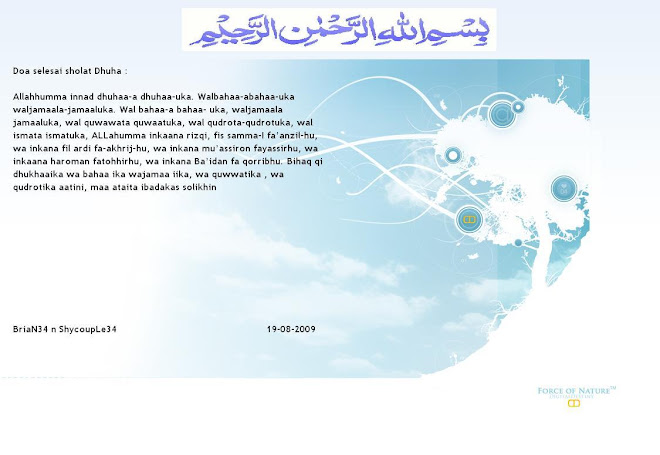Muhammad (prophet)
I INTRODUCTION
Muhammad (prophet) (570?-632), founder of Islam, whose prophetic teachings, encompassing political and social as well as religious principles, became the basis of Islamic civilization and have had a vast influence on world history.
Muhammad was born in Mecca. He belonged to the clan of Hashim, a poor but respected branch of the prestigious and influential tribe of Quraysh. His father died before he was born. After his mother's death when he was six, he was brought up by his grandfather Abd al-Muttalib, and after his grandfather's death, by his uncle Abu Talib. Pensive and withdrawn in temperament, he displayed an acute moral sensitivity at an early age, and he was known as al-Amin (“the trusted one”). Like his fellow tribesmen, he became a trader and made several journeys to Syria, where he may have met and conversed with Christians. He then began to manage the business of a rich widow, Khadija; she was greatly impressed by both his honesty and ability, and she shortly offered him marriage, which he accepted at the age of 25.
II FIRST REVELATION
Muhammad probably heard Christians and Jews expound their religious views at commercial fairs in Mecca, and, troubled by the questions they raised, he periodically withdrew to a cave outside Mecca to meditate and pray for guidance. During one of these retreats he experienced a vision of the archangel Gabriel, who proclaimed him a prophet of God. He was greatly perplexed by the experience but was reassured by his wife, and, as new revelations followed, he came to accept his prophetic mission. His wife and his cousin Ali became his first followers, and eventually he began to preach in public, reciting the verses of his revelation, which came to be known as the Qur'an (Koran). He gained some prominent converts, but the movement grew slowly.
III TEACHINGS
Muhammad's earliest teachings emphasized his belief in one transcendent but personal God, the Last Judgment, and social and economic justice. God, he asserted, had sent prophets to other nations throughout history, but, having failed to reform, those nations had been destroyed. Muhammad proclaimed his own message, the Qur'an, to be the last revealed Book and himself to be the last of the prophets, consummating and superseding the earlier ones.
IV OPPOSITION
Insisting on the necessity of social reform, Muhammad advocated improving the lot of slaves, orphans, women, and the poor and replacing tribal loyalties with the fellowship of Islamic faith. This egalitarian and reformist tendency quickly aroused the enmity of the rich merchants who dominated Mecca. They persecuted some of Muhammad's weaker followers, and in 615 he ordered 83 families to take refuge in Ethiopia. When both his beloved wife Khadija and his uncle and protector Abu Talib died in 619, he despaired of his position in Mecca. After an unsuccessful effort to convert the nearby town of AţŢā’if, he was approached by a delegation from Yathrib (later Medina), a city about 300 km (about 186 mi) to the north that was divided by tribal feuds. They asked him to arbitrate the feuds, offering him considerable authority. After careful negotiations, Muhammad accepted and asked his followers to emigrate from Mecca to Medina.
V THE HEGIRA
Muhammad left Mecca just as his enemies were preparing to murder him, and he arrived in Medina eight days later. His emigration became known as the Hegira (Arabic hijrah) and marks the beginning of the Islamic calendar.
Muhammad was soon given supreme authority in Medina, and he began to establish the ritual practices of Islam and to carry out social reforms. He promulgated a charter that specified the rights and relationships of the Muslims, Jews, and other groups of the city. The Meccans, meanwhile, persisted in their hostility, demanding the extradition of Muhammad and his Meccan followers. They were supported in Medina by a group, referred to in the Qur'an as the Hypocrites, who had submitted to Islam but were secretly working against it. This group in turn was aided by the three Jewish tribes that were residing in Medina.
VI WAR WITH MECCA
Muhammad's strategy in the developing conflict with Mecca was to attack Meccan trade caravans returning from Syria and thus economically weaken the city. In 624, the first major battle occurred, in which the Muslims, despite their inferiority in numbers and weapons, soundly defeated the Meccans. In the next major battle, the following year, the Meccans had the advantage but were unable to achieve a decisive victory. A Meccan army of 10,000 besieged Medina in 627 but failed to take the city. Muhammad meanwhile eliminated his enemies within Medina. After each of the first two battles he expelled a Jewish tribe, and after the third major battle he had the males of the remaining tribe massacred for collaborating with his opponents.
VII VICTORY
In 630, the Meccans, unable to conquer Medina and crippled by the severing of their trade routes, finally submitted peacefully to Muhammad, who treated the city generously, declaring a general amnesty. Tribal delegations arrived from throughout Arabia, and their tribes were soon converted to Islam. Muhammad, now the most powerful leader in Arabia, enforced the principles of Islam and established the foundation of the Islamic empire. He ordered the destruction of the idols in the Kaaba, the traditional place of pilgrimage in Mecca, which then became the holiest shrine of Islam. He granted Jews and Christians religious autonomy as “peoples of the Book,” whose revelations anticipated his own. On his last visit to Mecca, at the time of the annual pilgrimage, he gave a sermon in which he summarized his reforms, declared the brotherhood of Muslims, and repudiated all distinctions of class, color, and race. He died suddenly and unexpectedly in Medina about a year later, on June 8, 632.
VIII DESCENDANTS
As long as Khadija lived, Muhammad took no other wives. After her death in 619, when he was 50, he eventually married nine women, including Aisha, the daughter of his kinsman and early follower Abu Bakr, who was to become the first caliph, or successor to Muhammad. He also took a Christian Coptic slave as a concubine. Muhammad's sons all died in infancy, and the only daughter to survive him was Fatima, who married Ali, the fourth caliph.
RISOL MAYO (Tlp/SMS: 085707574334)
-
*RISOL MAYO (Tlp/SMS: 085707574334)*
Tersedia rasa original dan pedas.
Ukuran mini/besar isi 10 buah
Mini 28K
Besar 43K
Siap order, buruan ya kakak
Terse...
8 years ago








0 comments:
Post a Comment